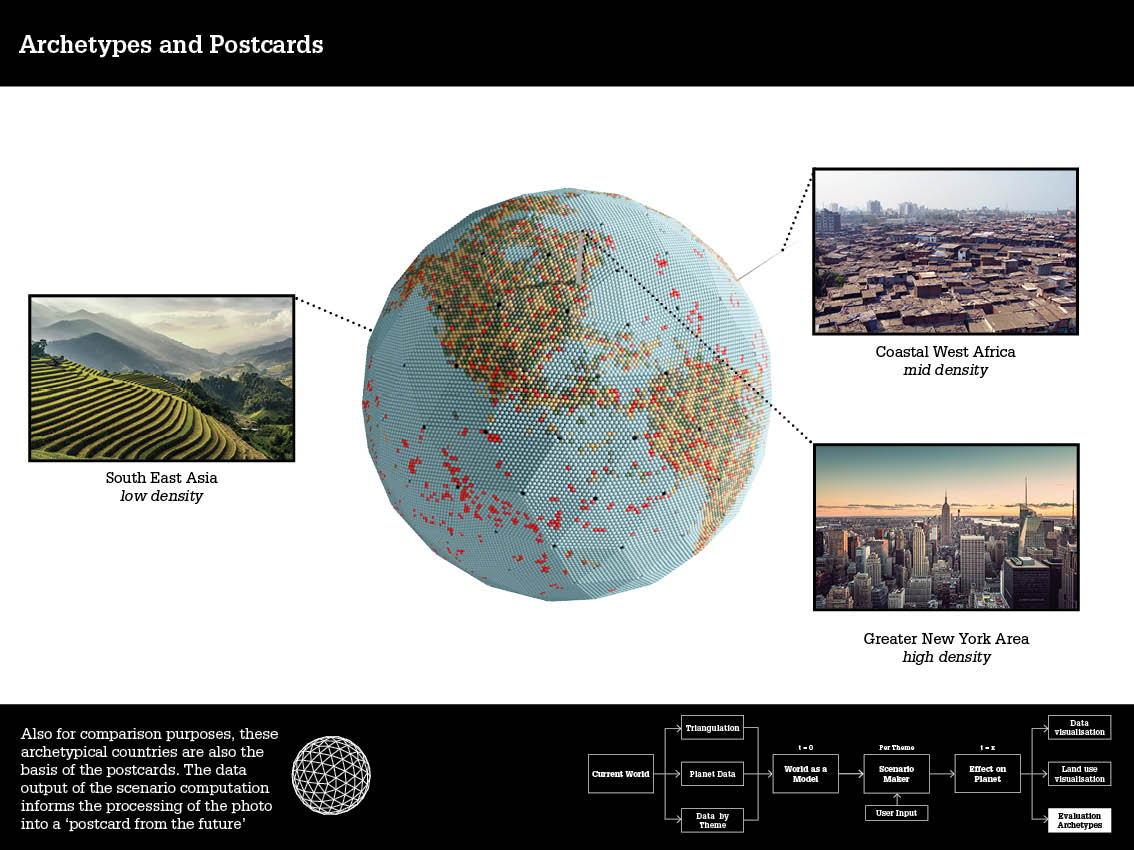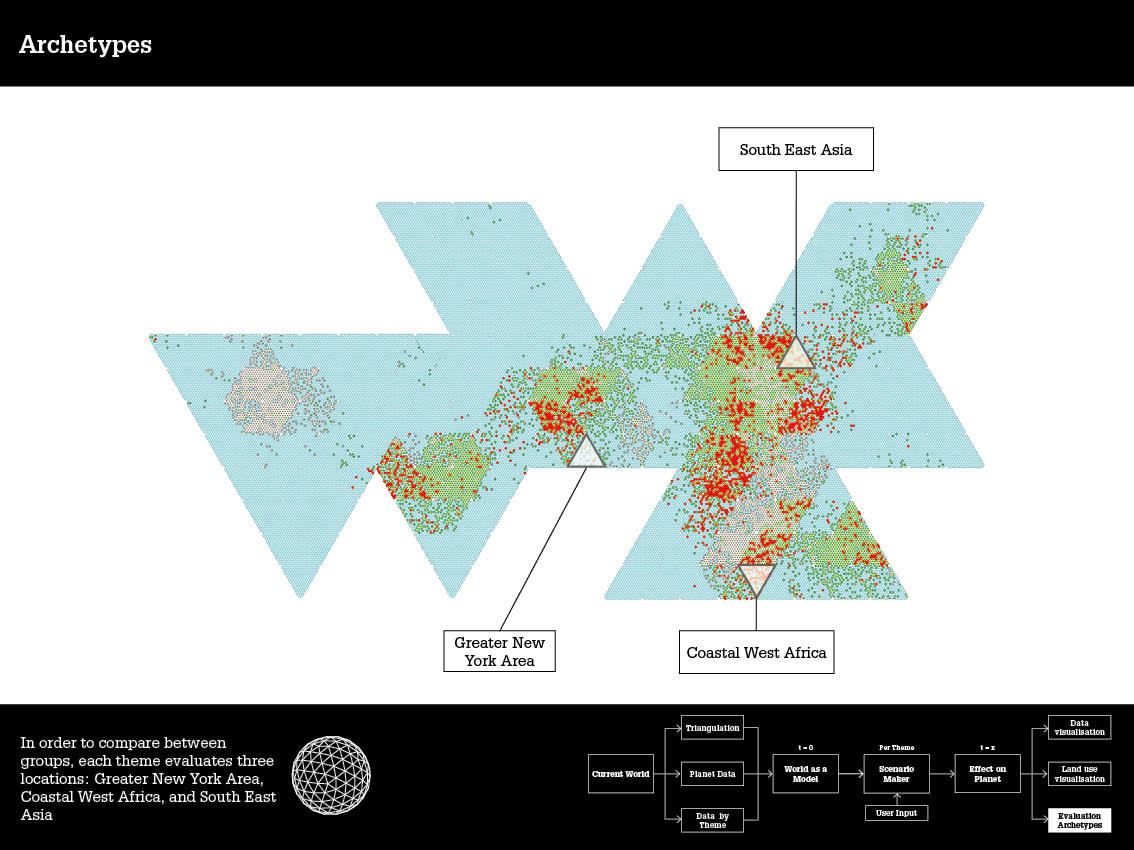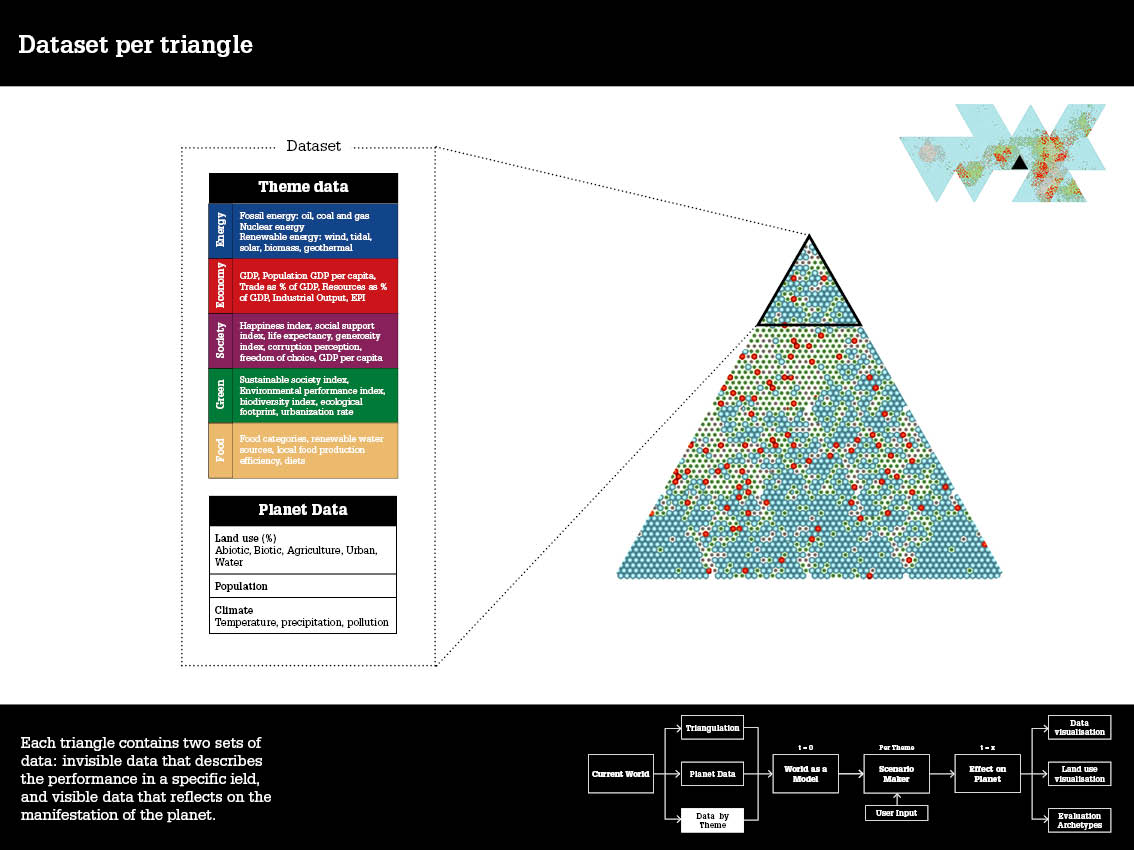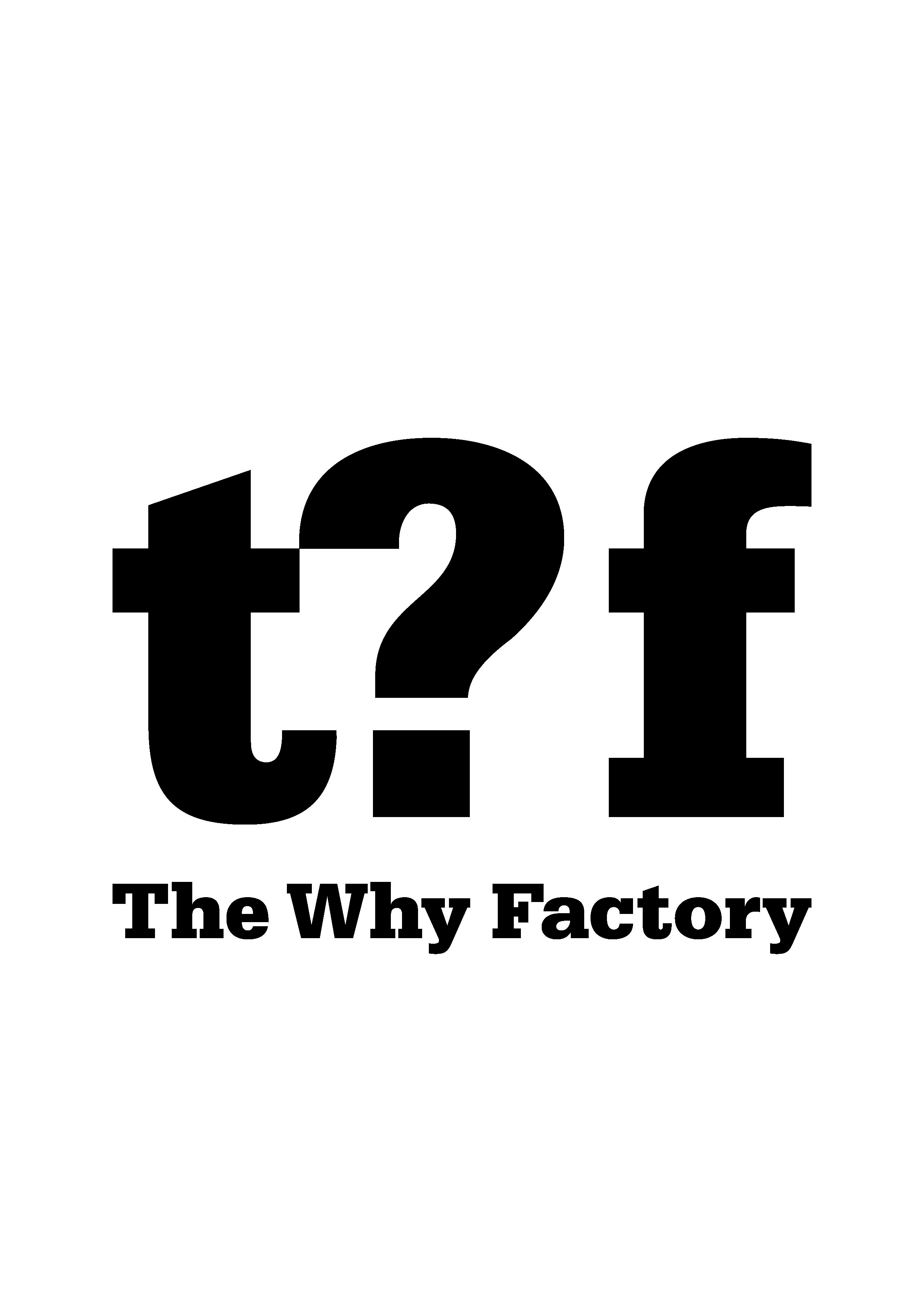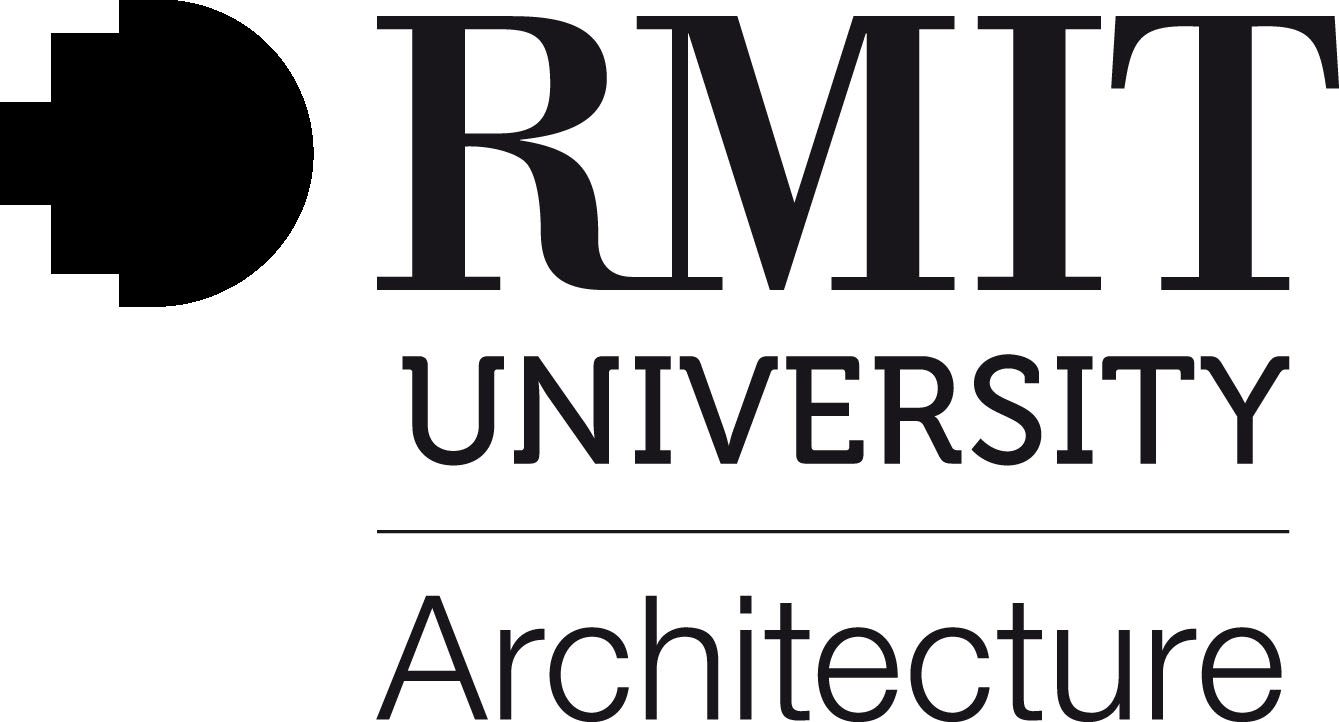The Planet Maker Design Studio: 48 scenarios for earth in the next century
The Why Factory, led by Winy Maas, present the first results of the Planet Maker design studio and research by The Why Factory in collaboration with RMIT Melbourne and UTS Sydney at TU Delft’s Orange Tribune
WHY
As the planet moves into the Anthropocene era, a shift of focus moves from the world of architecture instead to an architecture of the world. Architecture has the potential to explore beyond its traditional disciplinary borders, the possibilities, repercussions and limits of organising the world in a different way. And finding ways to make litterally better worlds. Spatially as well as politically, taking into account how technology disruptions can change assumptions about the future of the world. Rather than a top down approach, Planet Maker seeks to become a tool of exploration and simulation where ‘what if’s’ are tested to give guidance and inspiration for future planet makers. Iteration, variation and levels of intensity address the need to keep many options open for discussion.
WHAT
The future of planet Earth is explored through multiple ‘what if’s’ organized through six key lenses: Economy, Food, Energy, Mobility, Green & Society. These lenses take as their starting point an icosahedron and then a polyhedron of 320 triangles. Each triangle has three main attributes that are shared by all lenses: 1. land use, 2. population, 3. temperature. The future of the planet is simulated through scenarios that concentrate on exploring the coming 100 years.
HOW
Each lens explores scenario making what if’s and their variants in time through a simulation game that uses scripting tools to manage massive quantities of data and parameters. For every lens the teams have developed a specific method to tackle correlations between the most pressing subjects, yet all lenses are tested through a common database and a common output of land use. Starting by giving an overview of the most challenging futures the lenses then go on to explore the ‘what if’s’ simulating the effects of precise policies on the overall triangulation of the world. These mini software’s inform and guide the creation of 48heat-map globes that test ‘what if’s’ of the emerging Anthropocene. To visualize the effect of these ‘what if’ scenarios have on a particular location, a series of before and after postcards give the viewer a sense of the experiential impact of the scenario outcomes.
“Can we make planets that are truly green?” asks Winy Maas, the director of The Why Factory. “Can we make a planet that can cool instead of heat up? That can be open and free? That reduce poverty?”
CREDITS
FACULTY
TUDelft
Studio instructors: Winy Maas, Felix Madrazo, Stavros Gargaretas, Lex te Loo.
Future Models seminar instructors: Pirouz Nourian, Hans Hoogenboom.
Research and Education Coordinator: Javier Arpa
RMIT
Studio instructors: Vivian Mitsogianni, Ben Milbourne, Sean Guy
UTS
Studio instructors: Louisa King, Egbert Stolk
STUDENTS
TUDelft
Green: Joon Hyung Park (TUDelft), Magdalena Klimczak (TUDelft), Agnieszka Panasiuk (TUDelft), Ethan Allsop (RMIT), Vi Nguyen (RMIT)
Food: Hassan Ahmed (TUDelft), Stan van Stralen (TUDelft), Nils Treffers (TUDelft), Silvia Leone (TUDelft), Lok Tin Shing (RMIT), Xun Luo (RMIT), Qiannan Ye (RMIT)
Society: Lars Barneveld (TUDelft), Craig Trompetter (TUDelft), Anastasia Voutsa (TUDelft), Eveline Van de Bovekamp (TUDelft), Eilidh Ross (RMIT), Alexis Infeld (RMIT), Floyd Billows (RMIT)
Economy: Matt Bevan (TUDelft), Hellmer Rahms (TUDelft), Geoff Eberle (TUDelft), Alexander de Caires (TUDelft), Anna Lee (RMIT) Andrea Milovanovic (RMIT)
Energy: Heeyoun Kim (TUDelft), Hidde Manders (TUDelft), Pol Vermeulen (TUDelft), Alexandros Kypriotakis-Weijers (TUDelft), Damian Camilleri (RMIT)mobility, Nikolce Nikolovski (RMIT)
Mobility: Stewart Monti (UTS), David Cordato (UTS), Wayomika Nongrum (UTS), Nikolas Vidakovic (UTS), Gabrielle Veringa (UTS), Karina Alzate (UTS), Ali Makari (UTS)





